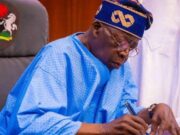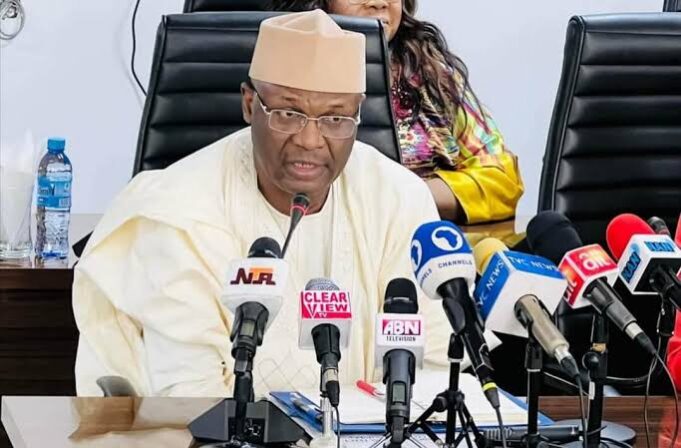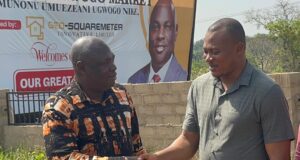INEC Chairman, Yakubu,
The Itsekiri Leaders of Thought (ILoT), the foremost sociopolitical body representing the Itsekiri people, has strongly rejected the Independent National Electoral Commission’s (INEC) proposed ward delineation for Warri Federal Constituency, describing the exercise as “biased, compromised, and inequitable.”
Speaking with journalists in Asaba over the weekend, Sir Amorighoye Mene, the Secretary of ILoT, stated that the Itsekiri nation would challenge the report legally, asserting that the delineation process was flawed and lacked fairness.
The proposed delineation was presented by INEC during a stakeholders’ meeting in Asaba, Delta State, in compliance with a Supreme Court ruling that mandated the fresh delineation of wards and polling units.
The Warri Federal Constituency comprises Warri North, Warri South, and Warri South-West local government areas.
Mene criticized INEC’s approach for allegedly disregarding the voting strength of different ethnic groups in the constituency, warning that if implemented, the Itsekiri people could be politically marginalized.
He called on INEC to ensure fairness by using the number of registered voters in each area as the basis for the delineation.
He further alleged that the Supreme Court judgment leading to the delineation was “surreptitiously” obtained, noting that INEC and other relevant stakeholders had not defended the case.
Mene accused INEC of selectively applying the Supreme Court ruling to Warri Federal Constituency, hinting at a hidden agenda by the electoral commission.
“We were not given the opportunity to speak or react at the venue of the unveiling because they knew they had done things inimical to our interest. But we have reviewed the report given to us and the entire Itsekiri nation completely condemns and rejects the work done by INEC.”
“We not only condemn it, we reject it in its entirety because the fears we had earlier on at the start of the exercise have been proven correct—that INEC will not be fair and just in the process. The report they unveiled today shows that INEC is very biased and anti-Itsekiri,” he stated.
Mene elaborated on the situation in the Warri North, stating that Itsekiris had historically had six wards while the Ijaws had four since 1999.
However, under the new report, Itsekiris, with 75,912 registered voters and 134 polling units, now have eight wards, while the Ijaws, with 35,480 voters and 58 polling units, now have 10 wards.
Mene emphasized that similar discrepancies existed in Warri South-West and Warri South.
In Warri South-West, Itsekiris, with 94,074 registered voters and 175 polling units, now have only five out of the 19 wards delineated by INEC.
Meanwhile, the Ijaws, with 95,046 registered voters and 147 polling units, now have 14 wards.
In Warri South, the Itsekiris, with 88,309 registered voters and 174 polling units, now have eight wards, while the Urhobos, with 38,000 voters and 72 polling units, now have 10 wards.
The Ijaws, in the mixed demographic area with approximately 51,517 voters and 105 polling units, have been allocated two wards.
Mene urged INEC to focus on ensuring that eligible voters can conveniently exercise their franchise, based on the number of registered voters in various areas.
“We expect INEC to be fair, equitable, and not biased because ward and polling unit delineation is meant to facilitate the administration of elections based on the number of registered voters in the various communities and areas,” he said.
He further emphasized that INEC’s primary responsibility should be to serve the convenience of voters, not to consider religious or land ownership issues, as it is not a court.
“INEC should concentrate on voters and how they can vote conveniently in the areas they are registered,” he added.

















